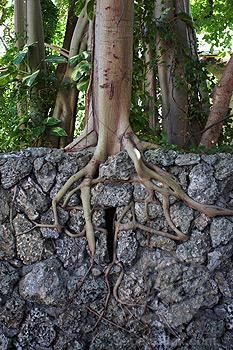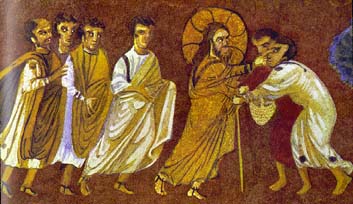In general, we should keep our word. The word is a powerful thing to have given. Remember that it is by the power of the word that the Lord creates the heavens and the earth.
Jesus teaches us to let our yes be yes and our no be no. Anything more, he says, is from the evil one (Matthew 5:37). James teaches us not to swear an oath, any oath at all, either by heaven or by earth (James 5:12). We are to be careful with what we say.
So then, what is to become of us if we have sworn an oath that we should not have? It is not uncommon for us to speak when we should be silent or say what we do not really mean. Is our word to mean nothing in such a case? Yes. Nothing.
Our words have meaning only to the extent they are aligned with the word of the Lord.
Any word we speak which goes against the word of the Lord is utterly empty and void of all meaning and power.
We are not the creators of truth or meaning. We are not creators at all in the true sense of creation out of nothing. We co-create or sub-create to the extent we live in Christ and are one with God by his grace. To that extent, we are instruments of God’s creative energy.
But what folly it is to try to give substance to any thing or purpose that is against God’s will!
This is what Herod does today.
Herod promises Salome anything up to half his kingdom as a reward for her sensual dancing (Mark 6:22-23). The lusts of men cloud their ability to see things as they truly are.
So Herod gives his word, but it is an empty word that ought not to be followed through upon. Especially when Salome reveals her mother’s designs, Herod ought to break his word. Yes, it is better to break our word than to break the word of the Lord.
But, in his cowardly fear of others’ thoughts, and knowing full well the wrongness of it, Herod follows through on his own word and disregards the word of the Lord: “You shall not kill” (Exodus 20:13). He not only kills, but kills the one who speaks the word of the Lord in truth – the prophet of the Most High, the voice crying out in the wilderness, “prepare the way of the Lord” (Luke 1:76; Mark 1:3).
Notice too: Herod only promises up to half his kingdom. All who are there presume this easily includes the life of John, the Baptist and Forerunner of the Lord. But John is the greatest man born of woman (Matt 11:11; Luke 7:28). He is a greater man than Herod and his life is worth more than half of Herod’s kingdom by far. So, in breaking the word of the Lord, Herod even breaks the true meaning of his own words.
This is the way that it always is. Our sin is not only our vain attempt to go against or undo the word of the Lord, as if that were possible. It is also a vain attempt against our own selves. It is not in our true nature as God has created us to foolishly try to defy the Almighty. Yet, we seem to keep on trying….
The way for us to keep our word is for us to live according to the word of the Lord. We exist by the power of his word.
When we speak words in folly that go against the word of the Lord, these words have no authority or power, and we are not to try to follow them. Rather, let us – as soon as possible – spit on the foolish words we spit out in the midst of our anger or our lust. Let us disregard them, as they are without substance or purpose. Let’s repent of them
On the other hand, when we speak words that are in accord with the word of the Lord, they are as already given by the Lord. Let’s obey these with fervor. Our speaking of the words in these cases is a good step toward aligning our will with the will of God. This is how we ought to use our words, which God has given us: to take our place in the chorus of saints, ceaselessly praising the name of the Lord.




